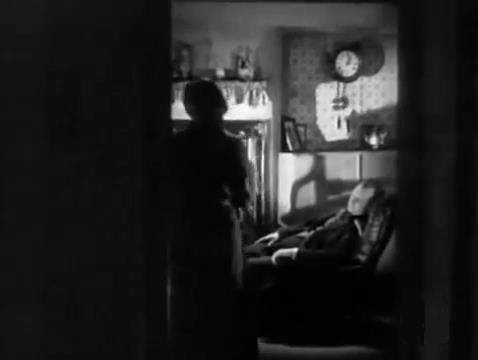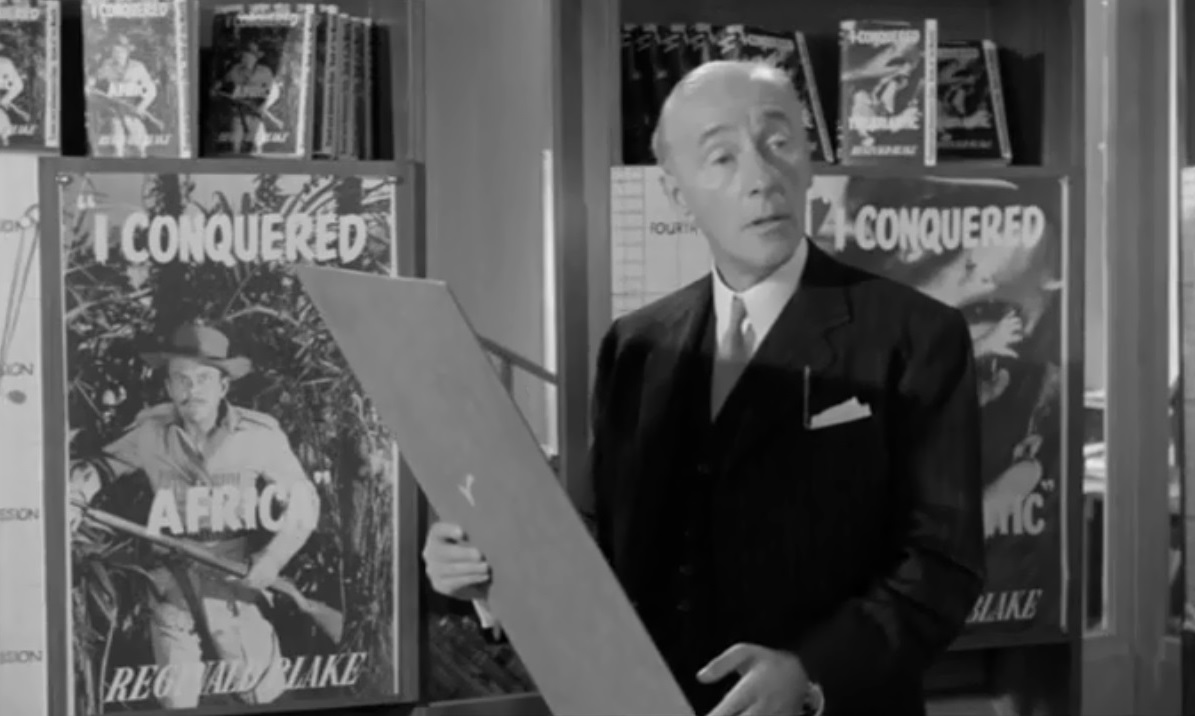On
the Night of the Fire

Not a surgeon but
a barber with ambition and a wife in debt to the draper, carrying Flaubert to
Newcastle.
From the author
of Odd Man Out (dir. Carol Reed).
Screenplay by the
director and Terence Young and Patrick Kirwan, Günther Krampf cinematography
(Erwin Hillier camera), Terence Fisher editor, Miklos
Rozsa score (Muir Mathieson conducting)
Bosley Crowther of the New York Times, “too self-consciously solemn and pretentious.” Variety, “absorbingly entertaining.” Halliwell’s Film Guide, “dour”.
Theirs Is the Glory
Probably the
greatest war film ever made, not only because of the unique circumstances of
its making, but the supreme genius and skill applied to every second of it.
Survivors of the
British military operation at Arnhem do what they did, one year later for
Hurst’s camera, and only what they did, no actors or drama, all told as
seen or lived through, two war correspondents bear witness.
Attenborough’s
analysis of the broad situation in A Bridge Too Far is decades away,
these are the chaps landed in it for a holding action that stretched beyond
expectations to the absolute limit and snapped back in a fighting retreat like
Dunkirk all over again, therefore it is a tale of the greatest heroism, pluck
and valor amid terrifying losses, and the filmmakers are quite conscious of the
fact.
Because it is as
it was, it is absolutely perfect, exactly, as far as it could be.
Scrooge
Scrooge’s
business dealings are exposed as the archetype of the global trader, who
deprives his countrymen of decent wages in order to sell them overpriced
sneakers manufactured with overseas labor paid charity wages. Hurst’s
resources are a classic British chiaroscuro, a Wellesian depth of focus, and a
very droll camera on Dickens’ divine comedy.
Malta Story
Hurst has the
pivotal role of describing the Mediterranean war from the island situated between
the Axis 58 miles away in Sicily and Rommel in North Africa.
This is
surprisingly similar to the Pacific war in its immediate view, exactly like
Guadalcanal by dint of constant enemy attacks, constant airfield repairs,
constant shortages, constant action.
Yet every type of
engagement is seen, destruction of ancient cities defended by Spitfires as in
Britain, attacks on convoys as in the Atlantic, the siege as in Russia.
Men have to be
spent, you pays your money and takes your choice, these are the two main
considerations apart from the dilemma at hand.
One of the most
brilliant, profound and able directors, Hurst.
Variety grasped the idea at once. As for the New York
Times reviewer, one “A.W.”, an irritating bore, advances have
been made since his day, but soldiers have had to use wax paper at times.
Hurst’s perfect technique is exhibited from the first, with a certain number
of process shots using a second unit on location, which latter fact is
significantly complained of by Time Out Film Guide.
The Mau Mau
attacks are sufficiently horrible, the response very weak and paltry, moreover
the divided British are facing a divided Kenya not all of them are on friendly
terms with, and so the matter limps along rather gruesomely, which is by way of
being the point.
The Mau Mau are a
tribal gang that deals in forced indoctrinations and ghastly massacres, the
story is very close to Brooks’ Something of Value and especially
Oboler’s Bwana Devil (Hurst’s title is the name of the local
Mau Mau leader, who hates the white man).
His and Hers

Reggie of the
Sahara strikes a domineering note at home (Terry-Thomas paying homage to Robert
Newton, “may all your wives be fruitful”) that tears it. Worldwide publicity stunts eke out his threadbare travel narratives
and bring home the bacon, he goes off the rails in a sandstorm whilst on a walking
tour, “it was ghastly, how can I describe it, I know, imagine Manchester,
but not rain, sand!”
He is writing his masterpiece, I
Conquered Reggie Blake, “ah, how little did I know what I was to
become in that brief period of time. I was to become
more than a writer, more than an explorer. I suddenly
understood what Mohammed meant when he said, in his immortal writings—”
The best part of
two years before Lean, a steady comic tempo of really admirable rapidity
conveys it. Bob Hope pays tribute to the African
explorer in Call Me Bwana (dir.
Gordon Douglas) a good two years later and then some, Frank Tashlin to the
unsurpassable style yet another two years later and more in Do Not Disturb. “Remember
Shelley, that’s an excellent example, Shelley. His
poetry was exquisite, yet in his day,
no sale!” She writes the book on him, I Was Conquered by a Middleaged
Monster. “So it’s to be a fight, is it,”
the Hoovering maid tells him, “I wouldn’t
have come here at all but I thought you was dead.” Felix McGregor (“you can call me Sandy”)
the Continental film producer offers to buy his new book “unread, unseen... I’m going to sink a picture right now that will
make Ben-Hur
look like a trailer.” The Blakes
divide the house between them by lot, out of his bowler (the author in his
kitchen is a triumphant memory of George Stevens’ Woman of the Year).
Question of not destroying
the chap utterly with an exposé and a divorce. Question
of a French lady photog met on the sands, in league
with the McGregor, finessed by the publisher. One of the
great beatnik poems at “a party going on in Chelsea that sounds like fun,”
lisped in numbers by Oliver Reed,
|
Life is long, they say, and I answer, life is a junkie’s dream lying
frozen in a gutter. |
The little nipper
treats his manuscript like Carlyle’s char, “the old magnificent Reggie
Blake” is found in his letters, he takes the point of her book laughingly,
and there’s an end, but for the gift wives from the Sahara via B.O.A.C. and the publisher’s
cut.
Co-written by Stanley
Mann, settings Peter Proud, cinematography Ted Scaife,
score John Addison (conducting).
Raphael Abraham (Financial Times), “screwball-lite”. Radio Times hasn’t the foggiest either, “Reggie is
forced to put himself in a number of bizarre situations...”
Eleanor Mannikka (All Movie Guide) lollygags, “scattered, slightly anarchic and
uneven”. Halliwell’s
Film Guide brings up the far distant rear, “a film of almost no
substance at all.”
The Playboy of the Western World
He gives the loy
to his own da “in Kerry and in Mayo”,
where the “villainy” of the place “and the fools that is
here” satisfy his curiosity about the world, a priest-ridden hamlet on
the sea.
The scandal of
the age in Dublin, where it was thought to be detrimental to the Irish.
Filmed on location
to great effect “at Dingle Bay in the Kingdom of Kerry, Ireland”.
TV Guide,
“a powerful, insightful, and witty examination of hero worship and the
mentality of a mob adapted from a play by Ireland’s greatest playwright.”